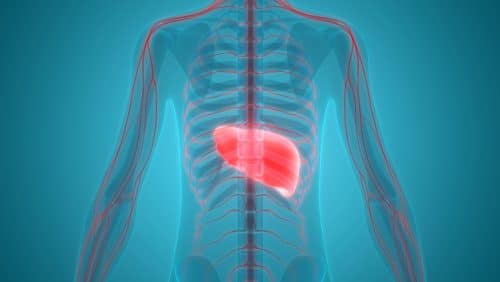The unprecedented number of molecules was discovered by Prof. Amiram Goldblum from the Faculty of Medicine at the Hebrew University and some of them are already in development procedures for drugs for incurable liver diseases and for improving physical ability

An unprecedented number of active molecules (27 different molecules) that have never been tested for any disease were discovered in a computerized scan with the help of an algorithm developed by Prof. Amiram Goldblum from the Hebrew University Faculty of Medicine. Most of the molecules found have potential for the development of new drugs. This is the largest amount of molecules registered in the Hebrew University's patent.
Integra Holdings (Integra Holdings), a holding company that invests in biotech companies based on Hebrew University developments, tested the molecules found by Prof. Goldblum and his partners and found that at least 21 of them have broad potential for drug development and are worthy of initial development in preparation for clinical development. Due to the great diversity and uniqueness of each molecule found, there are significant chances of yielding from their discovery breakthrough pharmaceutical developments.
Among the optional medicinal developments that have already begun the process of in-depth testing is a treatment for the serious consequences that may develop from non-alcoholic fatty liver disease (NASH), which is the most common liver disease in the Western world. This, due to their unique mechanism of action, which is an important molecular target and known for the ability to efficiently utilize fats. These days, research is being promoted to test the effect of these molecules on stopping fibrosis and liver cirrhosis, which are common developments of NASH that can lead to liver cancer. Fatty liver disease is considered incurable today and the amount of molecules found increases the chance of finding a cure for the disease.
Another development being tested is a drug that can increase human endurance for physical activity, and in effect cause the average person to have an unusual capacity for performance. The physiological research, with the support of the Milgrom Fund for Research in Military Medicine, is directed by Prof. Michal Horowitz from the Laboratory of Environmental Physiology, from the Faculty of Second Medicine in collaboration with Dr. Ran Yanovitch, Director of the Military Physiology Unit and the Heller Institute for Medical Research at Tel Hashomer Hospital. The goal in this research, as of today, is to test the ability of the molecules discovered by Goldblum to affect physical fitness in changing climates. In the first step, the molecules are tested for increasing the fitness of mice on a "treadmill" for laboratory animals under physical load and at high temperatures.
The discovery was published in the scientific journal Scientific Reports (one of the Nature journals). The algorithm with which the molecules were found earned Prof. Goldblum an award from the American Chemical Society and the Kay Award for Innovation at the Hebrew University. The molecules were tested at the Genomic Research Institute of the pharmaceutical company Novartis in San Diego and were found to be highly active and selective.
Prof. Goldblum: "These molecules hit a protein target called PPAR-delta that activates various processes, including transferring cells from utilizing sugar to utilizing fats to produce energy, to speed up wound healing, to stop the destruction of kidneys in diabetes, and to treat some types of cancer. When there is such a large group of active molecules, there is a chance to find among them a balm for various disease states - but it is not appropriate to create excessive hopes at this stage, but to wait patiently for the results of the studies."
for the scientific article
